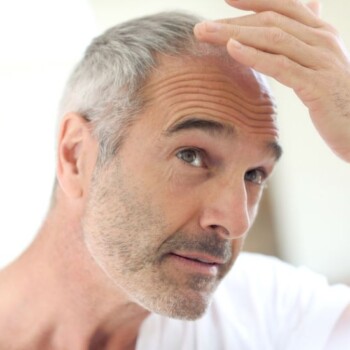Article Summary
The article delves into the multifaceted causes of sexual dysfunction in women, emphasizing the impact of lifestyle factors, hormonal changes, and psychological elements on libido. Loss of libido, often termed "hypoactive sexual desire disorder," affects women across various life stages, prompting exploration of treatments like compounded arousal creams containing testosterone and other vasodilators to enhance sexual function. Recognizing the importance of sexual health in overall well-being, the article advocates for open discussions with healthcare providers to address sexual concerns and explore personalized treatment options.Sexual Dysfunction Causes
Taking care of daily responsibilities, managing both a career and family, and sticking to a healthy diet can sometimes make it difficult to put a smile on your face, much less to get in the mood for sex. No wonder so many women have problems with libido (sex drive) or lose interest in sex entirely, especially at the onset and into menopause. A lack of intimacy can sometimes be enough to jeopardize relationships or compromise the happiness you deserve in life.
Loss of libido is an unfortunate condition that affects millions of women daily. Women from young to old can experience low sex drive at various stages of life: younger women may experience it after the birth of a child in their 20s and 30s; perimenopausal women usually during their late 30s and 40s; and both menopausal and postmenopausal women throughout the rest of their lives can all experience low libido.
Loss of libido is a complex phenomenon with psychological, relational, physical, and hormonal dimensions as unique as the women who experience them. The term libido has long been used to describe a person’s sexual drive and their desire for sex. Loss of libido, medically termed “hypoactive sexual desire disorder,” is a reduction or lack of interest and desire in sexual activity. Loss of libido is chiefly characterized by a lack of interest or desire for sexual activity and many women with loss of libido find that they are less in touch with their sexuality–sexual feelings come less frequently and energy for sex drastically dwindles or disappears from a woman’s life.[1]
Many factors can play a role in a woman’s drop in sex drive, which may be primarily caused by changes that are hormonal, physical, psychological, or relational. More specifically, some of the contributors to low female libido include decreased estrogen levels; vaginal dryness; medication side effects; chronic health conditions; loss of a spouse or partner; lack of emotional intimacy; conflict; stress; and mood concerns.
A decrease in sex drive can develop due to medical conditions or as the result of psychological or emotional issues. Inhibited sexual desire is a type of sexual dysfunction that affects both men and women. A reduction in sexual desire is most often associated with diminishing levels of testosterone in aging men, and menopausal transitions (reduced estrogen levels) in women who may also be sensitive to reduced testosterone levels. Chronic illnesses and chronic pain can also lead to a decrease in sex drive, likely through a combination of physical and psychological stressors. Additionally, certain medications such as some antidepressants can also reduce libido.
Looking for sexual wellness products?
Sexual Dysfunction Symptoms
The symptoms of low libido often mimic those experienced during and menopause and afterwards, and can range from non-existent, to mild, to severe. Common menopausal symptoms include:[2]
- Hot flashes
- Sleep disturbances (insomnia)
- Emotional changes, such as mood swings or irritability
- A change in sexual interest or response
- Problems with concentration and memory that may be linked to sleep loss and/or fluctuating hormones
- Headaches
- Rapid, or irregular heartbeat (tachycardia)
After you stop having menstrual periods, you may get other post-menopausal symptoms include, the most common of which include:[3]
- Drying and thinning of the skin, caused by lower collagen production
- Vaginal and urinary tract changes
- Vaginal dryness, irritation, and itching An increased risk of vaginal and urinary tract infections (UTIs)
- Pain during sexual activity
Sexual Dysfunction Treatment
Some medications work to potentially increase vaginal lubrication and relax vaginal muscles, where as others contain testosterone to potentially increase sex drive or estrogen to improve sensation, lubrication, and sexual interest.[4][5] A simple balancing of different hormones can also be the solution. Topical libido enhancers could be an appealing alternative to oral medications. Inconsistent dosing and possible side effects can be eliminated with topical creams that are applied locally to increase sensitivity and blood flow.
Empower Pharmacy produces a compound called “Arousal Cream”. Although the formulation can be custom tailored to each individual’s needs upon request, Arousal Cream’s standard formula generally contains the following ingredients:
- Aminophylline 30 mg/mL
a bronchodilator that may works in several ways: relaxes the muscles in your lungs and chest to allow greater airflow; decreases the sensitivity of your lungs to allergens and other substances that cause inflammation; and increases the contractions of your diaphragm to draw more air into the lungs for intense breathing. It is primarily used to treat the symptoms of asthma, bronchitis, and emphysema.[6][7] - Ergoloid Mesylate 0.5 mg/mL
is used to potentially improve cognitive (mental) and self-care functioning in people with symptoms of dementia related to aging or presumed to be related to conditions such as Alzheimer’s disease, and is used in treating symptoms of declined mental capacity wherein it impacts memory, behavioral, and especially mood problems.[8][9] - L-Arginine 60 mg/mL
is a nonessential amino acid which: may play an important role in the treatment of cardiovascular disease due to its antiatherogenic, anti-ischemic, antiplatelet, and antithrombotic properties; is commonly sold as a health supplement claiming to improve vascular health and treat erectile dysfunction in men; and is purported to have similar libido enhancing effects on women.[10][11][12][13] - Pentoxifylline 50 mg/mL
may causes changes in your blood that help improve blood flow, which potentially helps your blood carry oxygen to your tissues and organs. It could be used to potentially improve blood flow and reduce certain symptoms of a condition called intermittent claudication. It is also purported to potentially have similar libido enhancing effects on women. - Sildenafil Citrate 10 mg/mL
potentially relaxes muscles and increase blood flow to particular areas of the body. Sildenafil is used to treat erectile dysfunction (impotence) in men, and is purported to potentially have similar vasodialation effects on clitoral artery blood flow.[14][15] - Testosterone 1 mg/mL
is a sex hormone that is produced by males in large amounts, and is also produced in small amounts within women. Testosterone is used in men and boys to potentially treat conditions caused by a lack of this hormone, such as delayed puberty, impotence, or other hormonal imbalances. It has also been used in hormone replacement therapy and may improve sexual function in premenopausal and postmenopausal women.[16]
These ingredients are dissolved in a water based, hypoallergenic, transdermal vehicle. The vehicle is designed to enhance the rate of absorption, and to cause the medication to be retained locally in order to maximize local effects and metabolism, while minimizing the potential for systemic side effects.
Sex is not only an integral part of any relationship, but studies have proven it is beneficial to your health. A healthy sex life decreases stress and heart disease, while increasing happiness and sense of well being. Arousal Cream can only be obtained with a prescription from a licensed physician. Take the first step by speaking with your OBGYN about Arousal Cream.
Looking to source sexual wellness products for your patients?
Set up your Empower Pharmacy account today to get started.
Are you a patient looking to start your sexual wellness journey?
As a 503A compounding pharmacy, we fulfill prescriptions nationwide. Get started with Empower Pharmacy by speaking with your provider.
*Compounded medications are not approved by the FDA and are not tested by the FDA for safety and efficacy.
- Bredell, Elizabeth. Menopause. Manna Electronic Publications. Vers. 1.
- Bredell E. Menopause. Manna e-Book. April 2013.
- Eden K, Wylie K. “Quality of sexual life and menopause.” Women’s Health. 2009;5(4):385-96
- J Sex Marital Ther. 2011;37(4):243-54. Androgen replacement therapy improves psychological distress and health-related quality of life in late onset hypogonadism patients in Chinese population. Zhang XW, Liu ZH, Hu XW, Yuan YQ, Bai WJ, Wang XF, Shen H, Zhao YP.
- Erekson E et al. “Sexual function in older women after oophorectomy”. Obstetrics & Gynecology. Oct 2012;120(4):833-843.
- Can J Physiol Pharmacol. 1988 Feb;66(2):146-51. Reversal of pulmonary hypoxic vasoconstriction with pentoxifylline and aminophylline in isolated lungs. Hakim TS.
- Tohoku J Exp Med. 1979 Aug;128(4):345-53. Effect of aminophylline on regional perfusion distribution in the lungs. Isawa T, Teshima T, Hirano T, Shiraishi K, Matsuda T, Konno K.
- Eur J Pharm Biopharm. 2008 Mar;68(3):694-700. Epub 2007 Sep 12. Evaluation of brain-targeting for the nasal delivery of ergoloid mesylate by the microdialysis method in rats. Chen J1, Wang X, Wang J, Liu G, Tang X.
- Acta Neurol Scand. 1985 May;71(5):411-4. CSF levels of neurotransmitters in Alzheimer-type dementia. Effects of ergoloid mesylate. Seeldrayers P, Messina D, Desmedt D, Dalesio O, Hildebrand J.
- BJU Int . 1999;83(3):269-273. Effect of oral administration of high-dose nitric oxide donor L-arginine in men with organic erectile dysfunction: results of a double-blind, randomized, placebo-controlled study. Chen J, Wollman Y, Chernichovsky T, Iaina A, Sofer M, Matzkin H.
- Urol Int . 1999;63(4):220-223. Effectiveness of oral L-arginine in first-line treatment of erectile dysfunction in a controlled crossover study. Klotz T, Mathers MJ, Braun M, Bloch W, Engelmann U.
- J Sex Marital Ther . 2003;29(3):207-213. Treatment of erectile dysfunction with pycnogenol and L-arginine. Stanislavov R, Nikolova V.
- Urology . 2009;74(4)(suppl):S330. Can L-arginine added to tadalafil improve the results on patients with erectile dysfunction non-responsive to tadalafil as monotherapy? Cumpanas A, Botoca M, Minciu R, Fahes M, Bucuras V, Miclea F.
- MedGenMed. 2004; 6(4): 51. The Effect of Sildenafil Citrate on Uterine and Clitoral Arterial Blood Flow in Postmenopausal Women. Erkan Alataş, MD and A Baki Yağci, MD.
- Urology. 2006 Jul;68(1):161-5. Changes in clitoral blood flow in premenopausal women affected by type 1 diabetes after single 100-mg administration of sildenafil. Caruso S1, Rugolo S, Mirabella D, Intelisano G, Di Mari L, Cianci A.
- Eur J Endocrinol. 2006 Jun;154(6):899-906. Transdermal testosterone therapy improves well-being, mood, and sexual function in premenopausal women. Goldstat R, Briganti E, Tran J, Wolfe R, Davis SR.




